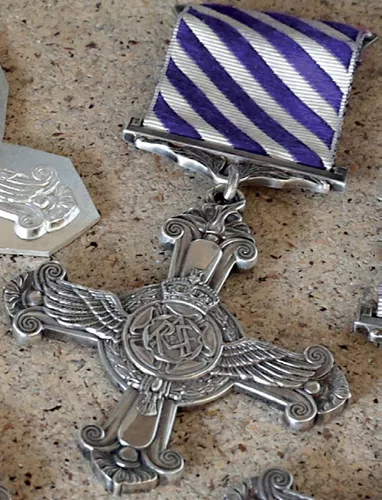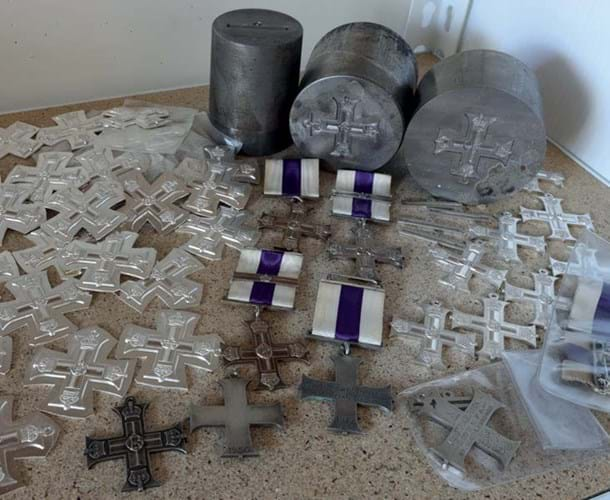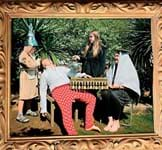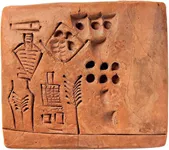The fake medal and poppy badge-making operation ran from a garden shed and a spare bedroom. An investigation that began in 2016 was concluded last week with a successful prosecution.
Trading Standards officers began investigating Croft Militaria Ltd following calls from collectors suspicious that the company was offering so many seemingly rare medals.
They found “a large-scale and sophisticated operation set up to manufacture military medals” at the Ashbourne Road, Mackworth Village address of company director Henry Lyttel, aged 29.
Lyttel traded as ‘badgeman2005’ on eBay. The seller was accused of offering fake gallantry medals and military badges, including Military Crosses and Distinguished Flying Crosses, along with pin badges bearing the poppy emblem, which is trademarked by the Royal British Legion.
Mark Smith, medal specialist at AH Baldwin & Sons, was among those who assisted in the four-year investigation. He said: “After accompanying a dawn raid by police and trading standards I was amazed to find what can only be described as a medal factory.
“A shed in the garden contained hundreds of faked medals, cap badges, shoulder titles and helmet plates. It was an incredible array of exceptional quality fakes, covering many regiments and units from all ages – literally hundreds of them.” Smith added: “This is a devastating blow to the medal world because these items are so good.” He believes Croft also used auction houses to sell some of the medals and badges through general sales.
The gallantry medals were manufactured from metals including pre-1940s silver and struck by a process identical to that used by the Royal Mint. Engraving and oxidising chemicals helped make them appear old.
Trading Standards officers established that Lyttel would often purchase incomplete medal groups at auction – those with provenance but typically missing the key award. He would then make any missing medals and sell on the group for much more.
It is estimated that Lyttel’s business made in excess of £72,000 in sales of fake medals and around £10,000 in the sale of fake poppy pin badges.
Officers have identified 77 sales of counterfeit medals via eBay and it is believed a larger number of badges, plates and pins were also traded.
Court case
Following the investigations into the company a case was brought to Derby Crown Court earlier this month.
On June 9 Judge Jonathan Bennett sentenced Lyttel to two years in prison, suspended for 18 months. He was also ordered to complete 100 hours of unpaid work, disqualified from acting as a director of a company for five years and is subject to a curfew for six months.
Lyttel had admitted three charges at an earlier hearing on May 27 of running a fraudulent business; supplying a poppy pin badge that was in breach of a trademark; and having in his possession for supply, poppy emblem badges in breach of a trademark.
Judge Bennett commended Derbyshire County Council trading standards officers, saying he was “very impressed with the thoroughness of the investigation at a time when trading standards are often criticised for a lack of ability and funding”.
Proceeds of crime action will be taken to recover money made by Lyttel and Croft Militaria Ltd.
Suspect items
Marcus Budgen, head of the medal department at Spink, added: “It is good news that this has been brought to justice for the collecting fraternity but more importantly the servicemen whose names were entangled in this case. In the first instance it is their outstanding service and sacrifice for our nation that should be remembered.
“It is possible some fake items remain in circulation. Anyone who has purchased from this individual or suspect items may be fake should seek advice from specialists in the field and contact the relevant authorities.”
















